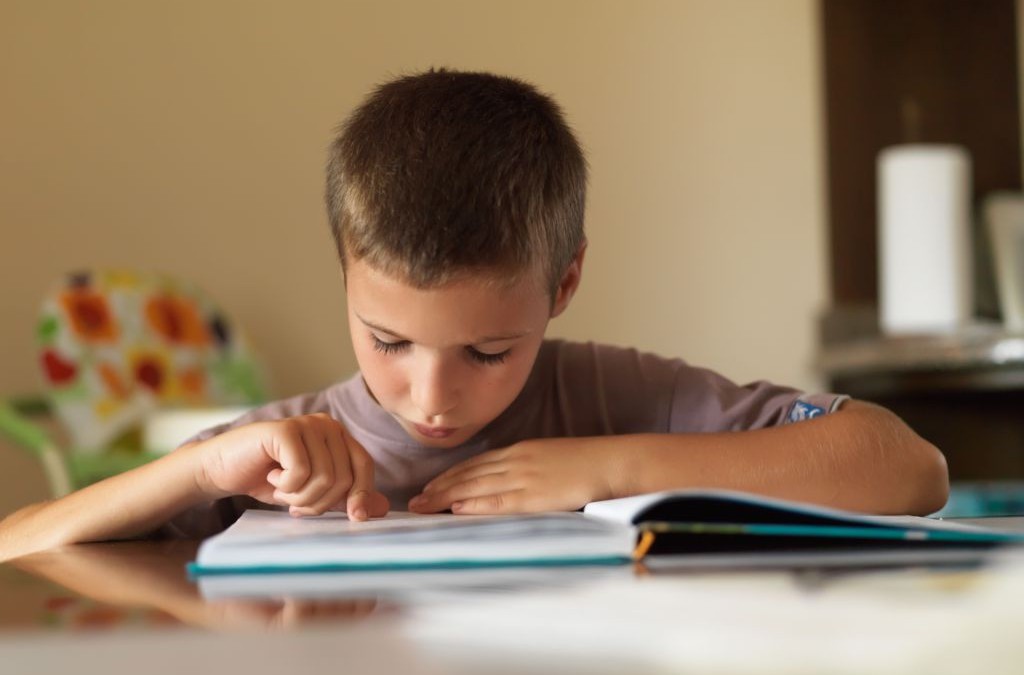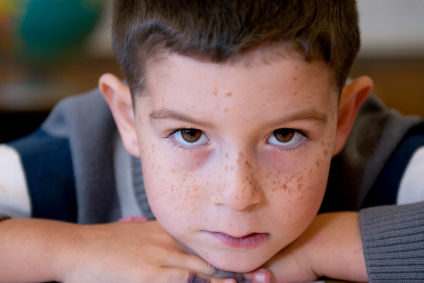
by PRIDE Reading Program Admin | Apr 20, 2016 | A PRIDE Post, Articles & Resources
Yes! A child can overcome reading problems if they are identified early and provided with the correct reading intervention program.
If your child is having troubles learning to read, take immediate action. Research in the field of reading says that the ideal window of opportunity for helping kids with reading problems is from the beginning of kindergarten to the end of first grade. This is still called intervention. After this window of opportunity has passed it is called remediation. Keep in mind that prevention is always easier than remediation.
The three key research conclusions from the National Institutes of Health are:
- 90% of children with reading problems will achieve grade level in reading if they receive help by the first grade.
- 75% of children whose help is delayed to age nine or later continue to struggle throughout their school careers.
- If help is given in fourth grade, rather than in late kindergarten, it takes four times as long to improve the same skills by the same amount.
Dr. G. Reid Lyon, Chief of the Child Development and Behavior Branch of the National Institute of Child Health and Human Development of the National Institutes of Health concluded that if children are identified early and provided with systematic, explicit, and intensive instruction in phonemic awareness, phonics, reading fluency, vocabulary, and reading comprehension strategies they can overcome their reading problems.
The type of intervention program a child uses is also crucial. On the basis of a thorough evidence-based review of the reading research that met rigorous scientific standards, the National Reading Panel (NRP), convened by the NICHD and the Department of Education, found that instructional programs that provide systematic instruction in phonemic awareness, phonics, guided repeated reading to improve reading fluency, and direct instruction in vocabulary and reading comprehension strategies were significantly more effective than approaches that were less explicit and less focused on the reading skills to be taught (e.g., approaches that emphasize incidental learning of basic reading skills).
Learn more about the New PRIDE Reading Program
______________________________________________________________________
Karina Richland, M.A. is the Founder of PRIDE Learning Centers, located in Southern California. Ms. Richland is a certified reading and learning disability specialist. Ms. Richland speaks frequently to parents, teachers, and professionals on learning differences, and writes for several journals and publications. You can visit the PRIDE Learning Center website at: www.pridelearningcenter.com

by PRIDE Reading Program Admin | Dec 2, 2015 | A PRIDE Post, Reading Disability
Reading is an important first step on a child’s path to success in life. A child that is an excellent reader is a confident child, has a high level of self -esteem and is able to easily make the transition from learning to read to reading to learn. For many of us reading is a natural process and we can read with ease and pleasure. Unfortunately, for a child with a reading disability, the reading process can become a frustrating and negative experience and is often very difficult to master.
What is a Reading Disability?
A reading disability is an inherited condition that makes it extremely difficult to read, write, and spell despite at least an average intelligence.
Learning to read is a sequential process. Each new skill a child learns builds on the mastery of previously learned skills. First, a child learns to break down words into their most basic sounds, which we call decoding. Later on, the child begins to comprehend the meaning of words and sentences, which we call reading comprehension. Decoding is an essential step in the reading process since it forms the foundation of reading. For a child with a reading disability, decoding does NOT come naturally and is NOT an automatic process. Most reading experts will agree that decoding problems is the basis of most reading disabilities.
Does my child have a reading disability?
Some signs of a reading disability:
- Child has difficulties sounding out words
- Slow laborious reading
- Reads without expression
- Ignores punctuation while reading out loud
- Guesses based on first letter of word
- Puts extra sounds into a word
- Drops syllables
- Reverses sounds
- Struggles with spelling
- Substitutes small common words
If your child is struggling in reading and showing the above symptoms, there may be good reason for you to request an immediate assessment. As a parent you want to be certain that you are providing what is needed for your child to succeed in school. To know what is necessary, an assessment is the first thing to do in order to identify the issues to remedy.
What is an assessment?
An assessment is simply a standardized test performed by someone trained and licensed to understand how to give the test and how to interpret the results. Specialists trained to do psychological testing and result interpretation are:
- Clinical psychologist
- School psychologist
- Educational psychologist
- Developmental psychologist
- Neuropsychologist
- Speech and language therapist
How do I get help?
A child with a reading disability will take in and process information differently and needs to be taught by specialists. Students with a reading disability will need to work with a specially trained teacher, tutor, or reading specialist to learn how to read and spell. Students who have been assessed and diagnosed through the school district might qualify for Special Education Services. Children with a reading disability progress best with a sequential, repetitive, systematic and cumulative structured reading program. Fortunately, with the proper assistance and help, most students with a reading disability are able to learn to read and develop strategies to become successful readers.
When is the best time to get help?
Effective early intervention is the key to helping a struggling reader learn to read. This training needs to begin sooner rather than later for the bet results. According to the National Institute of Health (NIH), 95% of children who have trouble learning to read can reach grade level if they receive specialized help early on. Kindergarten to the middle of first grade are the “window of opportunity” to prevent long term reading problems. Without early intervention, the “reading gap” might never close.
There is no reason why a child with a reading disability cannot learn to read and comprehend well. It is important that we never lower the expectations of a child with a reading disability. Children need to feel that even though they are struggling, they are loved and not being judged. So be encouraging and patient and praise often.
Learn more about the New PRIDE Reading Program
_________________________________________________________________________________________________
Karina Richland, M.A. is the Founder and Director of Pride Learning Centers, located in Los Angeles and Orange County. Ms. Richland is a certified reading and learning disability specialist. Ms. Richland speaks frequently to parents, teachers, and professionals on learning differences, and writes for several journals and publications. You can reach her by email at karina@pridelearningcenter.com or visit the Pride Learning Center website at: www.pridelearningcenter.com

by PRIDE Reading Program Admin | Feb 14, 2015 | A PRIDE Post, Reading Disability
Reading is an important first step on a child’s path to success in life. A child that is an excellent reader is a confident child, has a high level of self -esteem and is able to easily make the transition from learning to read to reading to learn. For many of us reading is a natural process and we can read with ease and pleasure. Unfortunately, for a child with a reading disability, the reading process can become a frustrating and negative experience and is often very difficult to master.
What is a Reading Disability?
A reading disability is an inherited condition that makes it extremely difficult to read, write, and spell despite at least an average intelligence.
Learning to read is a sequential process. Each new skill a child learns builds on the mastery of previously learned skills. First, a child learns to break down words into their most basic sounds, which we call decoding. Later on, the child begins to comprehend the meaning of words and sentences, which we call reading comprehension. Decoding is an essential step in the reading process since it forms the foundation of reading. For a child with a reading disability, decoding does NOT come naturally and is NOT an automatic process. Most reading experts will agree that decoding problems is the basis of most reading disabilities.
Does my child have a reading disability?
Some signs of a reading disability:
- Child has difficulties sounding out words
- Slow laborious reading
- Reads without expression
- Ignores punctuation while reading out loud
- Guesses based on first letter of word
- Puts extra sounds into a word
- Drops syllables
- Reverses sounds
- Struggles with spelling
- Substitutes small common words
If your child is struggling in reading and showing the above symptoms, there may be good reason for you to request an immediate assessment. As a parent you want to be certain that you are providing what is needed for your child to succeed in school. To know what is necessary, an assessment is the first thing to do in order to identify the issues to remedy.
What is an assessment?
An assessment is simply a standardized test performed by someone trained and licensed to understand how to give the test and how to interpret the results. Specialists trained to do psychological testing and result interpretation are:
- Clinical psychologist
- School psychologist
- Educational psychologist
- Developmental psychologist
- Neuropsychologist
- Speech and language therapist
How do I get help?
A child with a reading disability will take in and process information differently and needs to be taught by specialists. Students with a reading disability will need to work with a specially trained teacher, tutor, or reading specialist to learn how to read and spell. Students who have been assessed and diagnosed through the school district might qualify for Special Education Services. Children with a reading disability progress best with a sequential, repetitive, systematic and cumulative structured reading program. Fortunately, with the proper assistance and help, most students with a reading disability are able to learn to read and develop strategies to become successful readers.
When is the best time to get help?
Effective early intervention is the key to helping a struggling reader learn to read. This training needs to begin sooner rather than later for the bet results. According to the National Institute of Health (NIH), 95% of children who have trouble learning to read can reach grade level if they receive specialized help early on. Kindergarten to the middle of first grade are the “window of opportunity” to prevent long term reading problems. Without early intervention, the “reading gap” might never close.
There is no reason why a child with a reading disability cannot learn to read and comprehend well. It is important that we never lower the expectations of a child with a reading disability. Children need to feel that even though they are struggling, they are loved and not being judged. So be encouraging and patient and praise often.
Learn more about the New PRIDE Reading Program
Karina Richland, M.A. is the Founder and Director of Pride Learning Centers, located in Los Angeles and Orange County. Ms. Richland is a certified reading and learning disability specialist. Ms. Richland speaks frequently to parents, teachers, and professionals on learning differences, and writes for several journals and publications. You can reach her by email at karina@pridelearningcenter.com or visit the Pride Learning Center website at: www.pridelearningcenter.com

by PRIDE Reading Program Admin | Feb 18, 2014 | A PRIDE Post, Dyslexia
Because dyslexia is primarily associated with difficulty in learning to read, it cannot be reliably diagnosed until your child is the age at which reading typically begins. For most children this happens around the age of six. The following are some common characteristics that may be signs of dyslexia in preschool-age children:
- Jumbling sounds of words in speech, such as saying “pasgetti” for spaghetti” or “mawn lower” for lawn mover.”
- Confusing words signifying direction in space or time, such as “up” and “down,” “in” and “out,” “yesterday” and “tomorrow.”
- Forgetting or confusing the word for known objects, such as “table” or “chair.”
- Delayed speech development.
- Unusual speech patterns, such as frequent hesitations or stammering.
- Difficulty with learning.
- Difficulty remembering and following directions.
- Difficulty learning nursery rhymes and rhyming words.
- Difficulty in learning (and remembering) names of letters.
- Enjoys being read to but shows no interest in letters or words.
- Difficulty with clapping a simple rhythm.
In most cases you will probably not be aware that your child has dyslexia until he is in first or second grade. When reading instruction begins in earnest, your child is likely to lag behind and will begin to show signs of frustration at school. After several months, you may realize that your child simply hasn’t caught on to reading in the same way as his peers. He may still have difficulty recognizing letters of the alphabet, or he may know the letters and their sounds but seem unable to put them together to form even simple words. You may notice that he seems unable to remember words that he has seen before and struggles to sound out every word he sees.
The surest sign of dyslexia is simply the fact that your child seems bright and capable at home and at play, yet he struggles with reading, writing, and spelling. School-aged children with dyslexia will exhibit many of the following symptoms:
- Confusing letters with similar appearances, such as “b” and “d” or “e” and “c.”
- Writing that contains frequent reversals, transpositions, or inversions.
- Difficult remembering common sight words, even after repeated practice.
- Stumbling, hesitating, or making mistakes or omissions when reading small, easy words like “and” or “from.”
- Spelling phonetically and inconsistently such as writing “foniks” for “phonics” or “skul” for “school.”
- Complaining of dizziness, headaches, or stomachaches while reading.
Your first indication that something is wrong may be complaints from your child’s teacher about his behavior and problems he is experiencing at school. Many behavior problems stem from the dyslexia itself; your child’s teacher may complain that he doesn’t pay attention or follow directions, or that he is slow to complete class work. These issues may be the direct result of your child’s confusion and inability to understand much of what is going on around him. Other behavior problems may be deliberate and could be an expression of his frustration and anger; he may intentionally try to disrupt the class to create distractions so as to avoid having to complete his work. He would rather be known as the class clown than the class “dummy.” He may even want to incur punishment, if punishment means being sent to sit in the hallway or principal’s office. To a child with dyslexia, such punishment can be a welcome reprieve from the torture of the classroom. Some common behavior problems that your child’s teacher may report are:
- Laziness, carelessness, or immaturity
- Daydreaming
- Disruptive behavior
- Being easily distracted
- Resistance to following directions
- Reluctance to work on assignments
If you suspect that your child has dyslexia, you will want to seek testing and a diagnosis. Diagnostic testing will help you better understand your child and may guide you to make better choices. Ideally, testing should give you a map of your child’s strong and weak points, and a set of recommendations as to how best to meet his educational needs.
_________________________________________________________________________________________________________
Karina Richland, M.A. is the Founder of PRIDE Learning Centers, located in Los Angeles and Orange County. Ms. Richland is a Certified reading and learning disability specialist. Ms. Richland speaks frequently to parents, teachers, and professionals on learning differences, and writes for several journals and publications. You can visit the PRIDE Learning Center website at: www.pridelearningcenter.com




